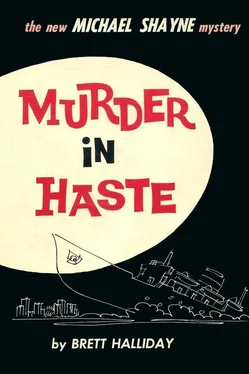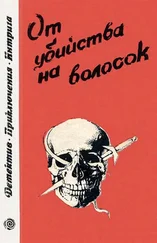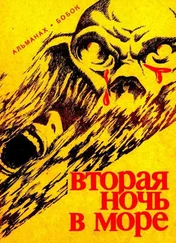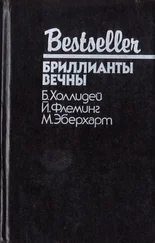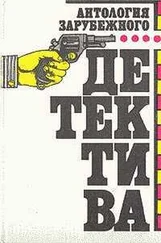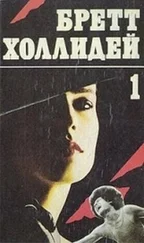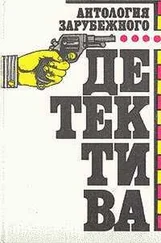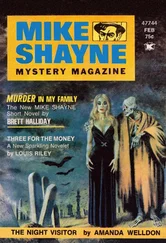“I’ll do it for your sake, Harry,” Shayne told him. “So long as I’m healthy you’ve really got something to use on Quinn.”
“I’m thinking of that,” Plato said.
Shayne went out, leaving the union president slumped in an armchair, looking old. The redhead used the door where the sergeant-at-arms knew him. The balloting was about to begin. There were two voting machines, and officials of the Honest Ballot Association were ready with delegate rosters, to be sure that no faction tried to vote its men more than once. The TV cameras were recording the scene, but neither cameraman bothered to follow the tall, rangy figure of Michael Shayne as he made his way among the tables and up to Quinn.
Quinn’s after-breakfast cigar had burned down halfway. The smell of tobacco mingled with the strong smell of after-shaving lotion. He was tipped back slightly in the chair, giving off an atmosphere of power and confidence, but Shayne saw that his manicured fingers were drumming nervously against his leg.
“Quinn?” Shayne said.
Quinn looked at him coldly through his horn-rimmed glasses. “We got a rule against letting private dicks on the floor.”
“They waived it for me,” Shayne said, “and it only cost me five bucks. Harry wants to see you.”
“Here I am,” Quinn said indifferently. “He knows what I look like.”
Shayne smiled down at him. “He also knows what you looked like three years ago, when you still owed Sticky Horvath some money.”
“Christ,” Quinn said in his gravelly voice, and added for the benefit of his fellow-delegates, who were pretending not to listen, “He probably needs somebody to tie his shoelaces. Hell, he’s got another twenty-five minutes, let him live it up.”
The delegate beside him said, “What do we do about — you know, the Welfare Fund?”
“Plenty of time,” Quinn said. “They’ll keep the machines open till everybody votes.”
He came with Shayne. Outside in the corridor he started to speak, but straightened his glasses instead and walked on, puffing busily at his cigar.
“You working for Harry these days?”
“He made me an offer,” Shayne said, “but I’m not sure he has much of a future.”
“Now that’s using the head, Shayne. I’ll give you a tip. He hasn’t got any future.”
Plato was standing, facing the door. He had succeeded in summoning up his old belligerent expression.
Shayne said, “You won’t want me, will you, Harry?”
“Stand by outside. Nobody comes in. Nobody.”
Shayne closed the door and moved fast. He called to the nearest cop. “Nobody in or out of this door,” he said, echoing Plato.
Lieutenant Wing was coming toward him. Shayne signalled, and Wing met him at the entrance Shayne had used before.
“Wait a minute,” the sergeant-at-arms said.
Shayne went on to the press table and worked in beside Rourke.
“It’s all set, Mike,” Rourke said in a low voice.
Shayne looked at the floor. The reporter had hooked into the main cable from the microphone, scraping off the insulation and tying in two wires from a small receiving set in his lap.
“I thought I was going to take a few thousand volts doing it,” he said. “But how did you plant the mike? Wasn’t he with you all the time?”
“It’s in my hat,” Shayne said. “The hat’s out on a desk. We ought to get good reception.”
“Son of a bitch,” Rourke commented.
Wing sent two cops to stand beside the microphone above them. Shayne switched on the receiver. It was a powerful set, manufactured for this purpose and no other. It only received on one wave-length and its single knob was a volume-control. There was a good deal of noise in the hall, but Shayne heard a faint crackling from the loud-speakers suspended from each corner of the gallery. He grinned at Rourke and stepped up the volume.
Plato’s voice roared over the public address: “When are you going to get it through your thick head that times have changed?”
The general babble in the ballroom was cut off as abruptly as if it were controlled by a single switch. Everyone looked toward the dais, where the two cops stood self-consciously on either side of the unattended mike. Shayne turned the knob, and Plato’s voice continued more quietly: “If you think you can get away with that kind of rough stuff, you’re making a mistake, Luke. The newspapers. The goddam Senate.”
Quinn replied with a truck-driver’s obscenity, telling Plato what the Senate could do, and it came over clearly.
Rourke said, “I wonder if that went over the TV.”
“The country may survive,” Shayne said.
Plato repeated the obscenity sarcastically. “I wish they could hear you say that. All right, kid how you planning to swing in the vote?”
“I have respect for you, Harry,” Quinn said. “You did a lot for this union. And you did a lot for yourself too, not to speak of your family and your wife’s family, but let’s not talk about that. I hate to break it to you this way. We’re dumping you. You get the pension, and that’s all.”
Plato’s voice was hard. “You’re going for that— that—”
“We’re going for your distinguished opponent from San Francisco. And you’re speaking of the future president of the Welfare Fund, so watch your language. I listened to the offers. We talked it over. And when I saw a way to take care of this Painter situation, I put the word around — what we need in the leadership is some representation from the West Coast.”
In the ballroom, the voting had stopped. The delegates had formed in lines leading to the tables to have their credentials checked, but the lines weren’t moving. Several of the most burly delegates moved toward the microphone. Wing’s reserves formed, two deep, nightsticks ready. For an instant it looked as though TV cameras would record some real action, but the threat fell apart before it reached the police line.
Shayne called to Wing, “Put another half dozen men in front of the Midwest office, Joe.”
“What did they offer you?” Plato cried. “Human blood?”
Quinn replied calmly, “I’ve got his promise for two years from now.”
“For what?” Plato was almost screaming, and Shayne turned down the volume. “For president? You want to step into my shoes?”
“Not right away, Harry. I’m not ready. Two years from now we figure will be about right.”
Plato said, “I knew you were crazy. You don’t have the... the stature, Luke. Everybody knows it. And your background! You’re vulnerable.”
“Not any more,” Quinn said.
“You’re wide open! I got this union finally a little respectable, and how’s it going to look when the international president’s put away for murder?”
“I’m in the clear, Harry. Not all the way in the clear, but close enough. I’ve got two years to take care of everything.”
“No, Luke, it can’t be done. You left too many loose ends. We’re in the goddam limelight, you can’t do things the old way. Sending goons to knock off that girl! That’s crude, Luke. You solve one problem and you make a couple more. Knocking off Milburn, okay, that’s the one thing you handled right. I think I’d even let you get away with knocking off Painter, because the dumb little no-good had it coming. But I’ll be damned” — his voice thickened — “if I’m going to let you get away sinking my boat!”
“I asked you to hand him over, Harry. I had to take him.”
“I had him under control.”
“And for how long? You found out what he was working on, I don’t know who from. That crumb Horvath, probably. Yeah, and he’s somebody else who’s going to get it in the head. And did you tell me so I could take care of it? You did not. You grabbed Painter and put him in the freezer so he couldn’t blow the whistle on me till you had both fists in the Welfare Fund. That may be good politics, but it’s not so hot, friendship-wise. I can’t feel so warm to you any more. And after the election? You were going to get him found with a babe in a motel, I hear! You’d have the Fund. And me? I’d change places with Sam Harris in condemned row.”
Читать дальше
